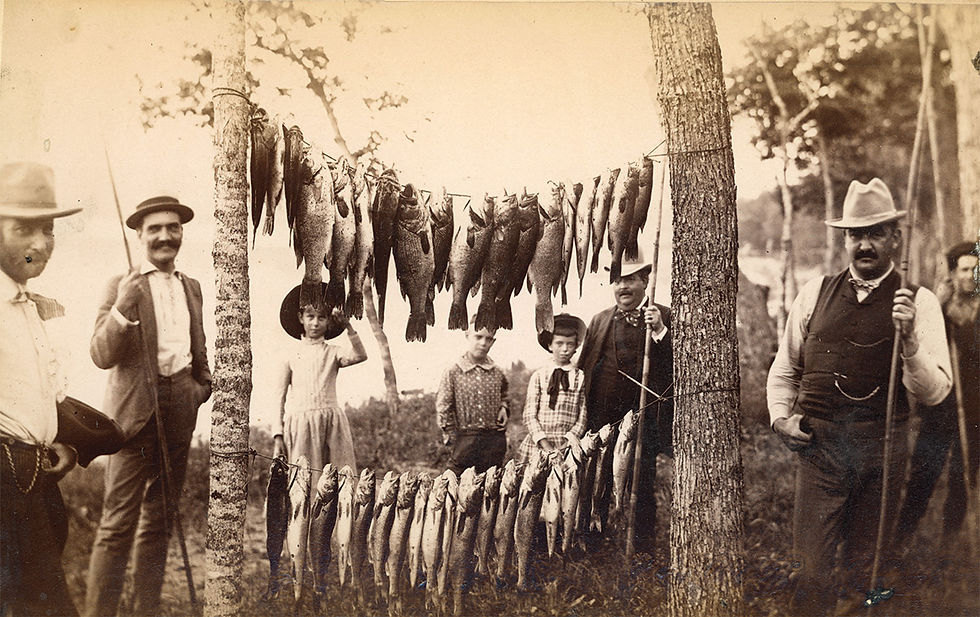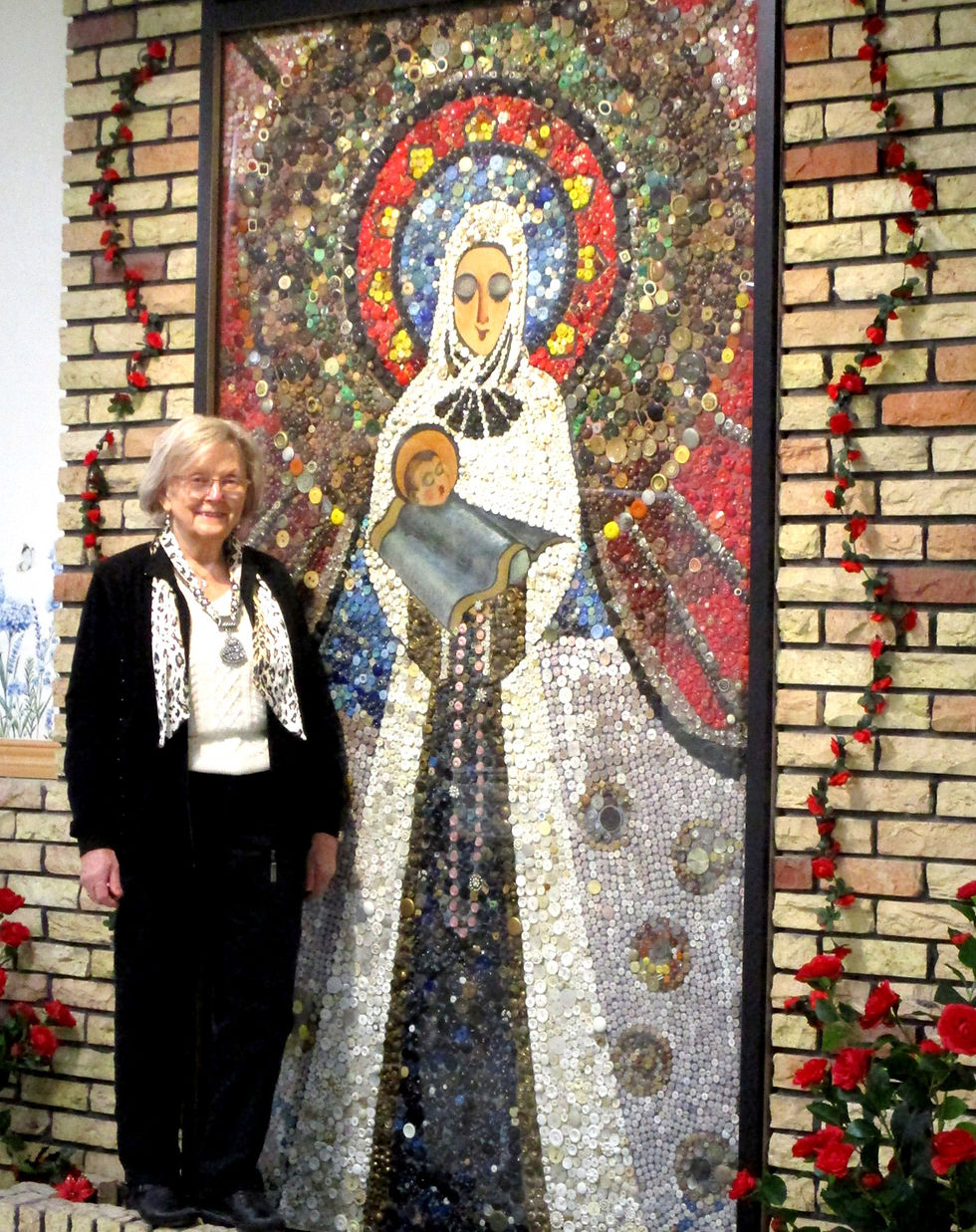Life in the 1890s
- Sr Perspective

- Oct 3, 2022
- 7 min read
Diaries give glimpse of daily struggles, joys on a Minnesota farm 130 years ago
By BILL VOSSLER
When Ralph Carr moved, he was not surprised to find old items he hadn’t seen for a while. But he didn’t expect to find five family diaries written by his great-great- grandmother about life in Minnesota 130 years ago.

“My great-great-grandmother Cornelia Esther Dickinson wrote in her diary every single day, even when she was ill, even after doing all the typical farm wife work of washing clothes, baking, cooking, farm chores, and seeing lots of visitors.”
Diary History
Cornelia’s diaries begin Jan. 1, 1891, and run through Dec. 31, 1894, and all of 1896. It’s unclear whether Nelly, as she was called, kept diaries for other years that have been lost. She was 59 in 1891.
Ralph, of St. Cloud, said, “Cornelia and her husband Luther moved to Excelsior from Massachusetts in the 1870s, because they were Congregationalists, and Excelsior had one of the oldest Congregational churches west of the Mississippi River. Luther started a broom factory in Excelsior, following the footsteps of his grandfather, Levi Dickinson, who invented the corn broom in 1798.”
“My father, Charles Carr, said he found the diaries from four generations back when he was cleaning out the attic in my grandfather Eugene’s old farm house near Deep Haven. The first time I saw them was in the 1990s, but I didn’t see what was in them.”
That would change in 2010 when Ralph was cleaning out his parents’ apartment and found the diaries. “I didn’t realize they still had them. I also found the transcription my dad typed up, which is much easier to read than the fading ink in the diaries, although Cornelia’s handwriting was neat and careful.”
Diary Contents
The diaries centered around what could be described as eight main themes: weather, health, food, work, cleaning and repairs, social life, work, and miscellaneous.
1. Weather.
Weather was a huge topic, with high and low temperatures listed first every day, along with conditions at times. Because Cornelia and her husband Luther lived in a large farmhouse a mile from Excelsior, with their daughter Mary, her husband William Arthur Carr, and their three children, weather was paramount.
“Barrel just frozen in the buttery. Hardly keep warm with two fires, 22 below, coldest yet. Melting snow for water, windows frozen.”
“A very very stormy day, as much of a blizzard as I care to see. When shall we get out down town again? Ought to be thankful we have enough food to eat & wood & coal to burn.”
“Hail in the morn when we got up and turned to snow when Luther went off to his work. How the trees have broken the limbs off overnight, round the house. What will the end be?”
“Mud, mud, and water. People begin with wagons now, one wagon gone past. Roads bad and lots of mud by the college. O, the roads, pity the poor old horses, some go past now, mud & water, plenty of it.”

2. Health.
“We have ironed, my back is bad yet.”
“A.C. not feel first rate, laid on the bed with (son) Elmer after dinner.”
“Saw Dr. Best for my eyes, will have a pair to wear all the time & mine fixed with new glasses in.”
“Wallace hurt his eye, so Eliza sent for Dr. Perkins and now W. has mud on it, all fixed up. Hurt it with a nail in a stick.”
3. Death.
Cornelia also wrote of difficult times, as when her daughter Mary lost a baby boy. Ralph said, “The reason I knew about the baby boy even before the diaries was because every Memorial Day we went to the Dickinson plot in the Excelsior Graveyard, and saw the site for ‘Baby Carr.’”
Cornelia wrote, “A. C. (Arthur Carr) down this morn, their baby boy dead. God bless Arthur & Mary & comfort them. He will if they but ask Him. A pretty baby boy gone to Heaven. A. C. makes the coffin & puts him into the cemetery. Sweet little fellow better off now. We do hope Mary will be all right in time. She must be so careful of herself for a good while.”
“Mr. Kibby is dead. He was buried on the grave yard back of Mr. Leach’s. Long ride so cold a day. Rev. Shaw spoke so good, ‘asleep in Jesus.’ Everyday Christian was Mr. K. May I be ready when God calls me.”
“Arthur Carr & Elmer to the village before dinner to get Jim (their horse) shot. He is lame.”
4. Food.
“Luther bought (a hog,) now we can have some lard. Cost enough, 8 ½ cents a pound, $13.86. Now lard for doughnuts.”
“Children out on the piazza and in the shed to see their father cut the hog.”
“Potatoes some frozen I brought up this morn the first time. We ate them, good mashed for dinner.”
“Horseradish grated today, new and strong.”
“Mary baked bread, pies, & molasses cookies. I have melted snow this afternoon. Mary has beans in the oven cooking for supper. A.C. fixing up a big rooster to cook for our dinner tomorrow.”
5. Social Life.
The parts of the diary that surprised Ralph the most were “The incredible amount of social interaction with so many different people and so many relatives visiting, and friends in town,” even in the coldest weather, and especially considering that the Dickinsons lived a mile from town.”
For example, in one day: “Called on Mrs. Gerolimen & daughter, Mrs. Bennett & Nettie & baby, Mrs. Melvin Bennett, Mrs. Winholtz, Mrs. Stapp, Mrs. Peters. Called at the door & peeped into Etta Watson’s on my way home.”
Seeing this many people in a day was not unusual for Cornelia.
“I after dinner footed to Mrs. Bardwell’s, a nice chat with her. Mrs. Bray came over a while to chat.” The use of “footed” charmed Ralph, as when she “footed into town” or someone else “footed out to the farm.
Mr. Thomas & wife, Charlie & wife, George & family, Luther & I took dinner with Jut (son Justin Dickinson) & family below, a nice social time.”
Called on Mrs. Monitor, they stay in their house for the summer. Good, I have another place to go & chat.”
6. Cleaning and Repairs.
“I have washed off the floor, and A.C. cleaned the pieces of carpet. Mr. Melvin here for dinner, he will put down a well for us. Hope to have a good well.”
“Tile all up in well, a lot of water pumped out. Mr. Melvin here to dinner, came to dig well, struck water.

7. Work:
“Mary washed the floor, I fixed the rugs, so we have done something today.”
“I have written two letters.”
“Jut painted below, bathroom & painting the doors up in the hall above.”
“Sophie (hired girl) got out a few pieces & cleaned the pantry & put clean papers on the shelves. I like that girl!”
“Girl brought home my bag of clean clothes.”
“L. has gone to the stores & for mail, no letters lately.
“Walked to the Pavilion to see the boat sail off, small one.”
“L. & I have taken a bath.”
“Was to the commons to see ball playing.
“A.C. goes on the noon train. Takes a lot of eggs to the city to sell.”
“Most a barrel of water from melted snow. Rain & melted snow going into the cistern, good soft water.”
8. Miscellaneous. Like other aspects of Cornelia’s diaries, each of these incidents shows what life was like in Minnesota in the 1890s, things most Minnesotans don’t remember or think about.
“Peddler came just before dinner, did not stay and we did not buy from him.”
“Two men called at the door, one wanted to sell me something, don’t know what it was, & the other one wanted to fix a sewing machine.”
Luther gone to the city to hear a speech from McKinley on politics. Lots go from here, but not to hear him, to the theater, Geo. & Emma & others. They go out to the Hall tonight, dance & entertainment.”
“Eliza & Emma have gone to Cora Diamond’s to card party.”
“Lost my dog pin yesterday afternoon. O, wish I could find it. Br. James gave it to me. Walked as far as May Newman’s this morning for it.”
“Don’t find my dog pin yet. Eliza has given me one tonight.”
Five days later: “Lilly Turner found my dog pin. Good girl.”
One entry mentioned how Mrs. Bardwell came and had tea with Cornelia, and was surprised to find Mary’s new baby there. Cornelia wrote, “The baby is pretty good, and Mary is getting along nicely, I hope.”
Ralph said, “That was my grandfather Eugene, who had just been born, and it was routine to have children born at home through a midwife.”
Ralph noted that holidays appeared to be very different from today. He said, “I found out that they were very not very much focused on the day. Nothing in the diaries indicated any preparations days before Christmas, for example, and little was mentioned for Easter.”

He added, “I think Nelly was so used to cooking and making meals for company that it was probably wasn’t something she thought as unusual. For Christmas, nothing was mentioned about presents, either. People just stopped in. Certainly more social interaction than in my generation. They would stay for tea for a couple of hours and help out with something, and then they ‘footed’ home.”
Ralph said he returned and referred to certain places or dates in the diary when someone asks him a question and triggers a memory. “It’s fun to sometimes just pick a few days out of the year and see what was going on.”
He said, “It seems like the farm was very secondary. They must have had cows, because Nelly churned butter, but they may not actually have been farming the land themselves, because she doesn’t mention anything about raising hay or wheat or corn or anything like that. Strictly about business in town, the broom factory and also a lumber yard they had. So they may not have been farming it themselves, but maybe they rented it out.”
Ralph added, “I really enjoyed thinking about how their lives were so full without any of the things that we take for-granted: they had no indoor plumbing, central heating, electricity, automobiles… Of course nobody had those things at that time, so how they lived was normal, and they seemed to get along just fine.”
He donated the diaries to the Excelsior-Lake Minnetonka Historical Society so other people could enjoy them too.




Comments